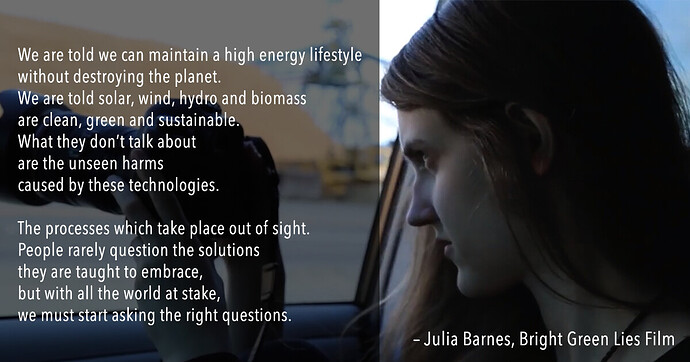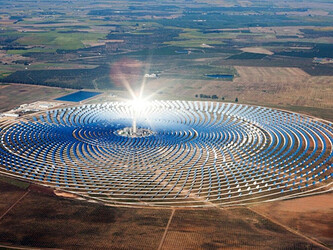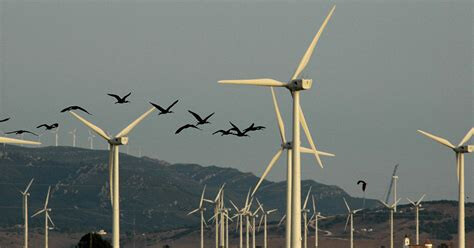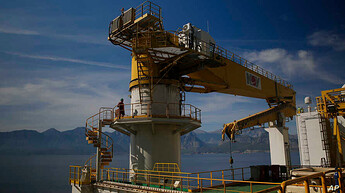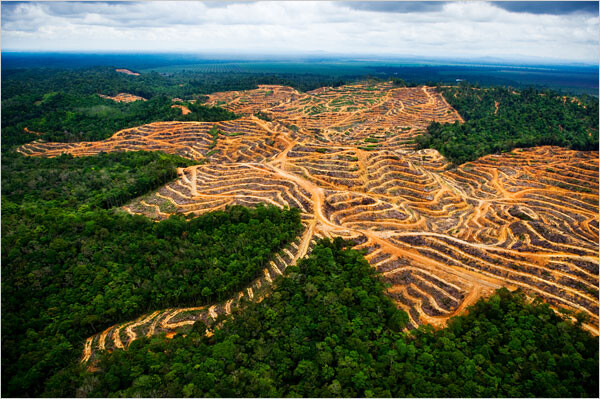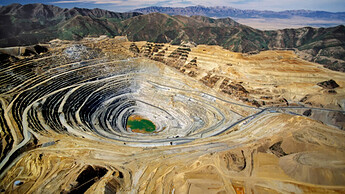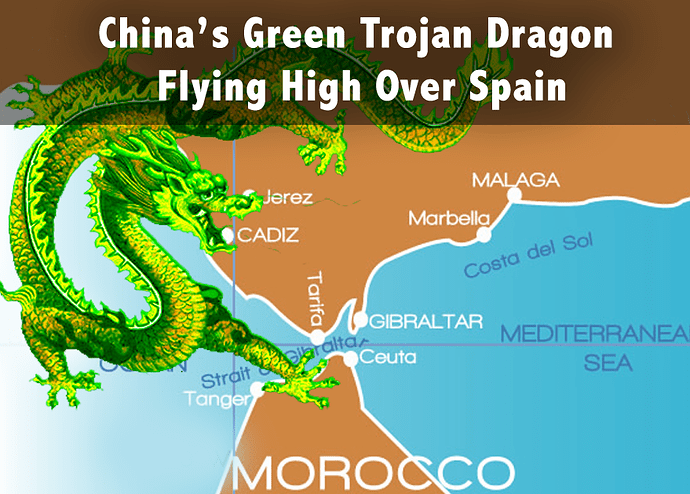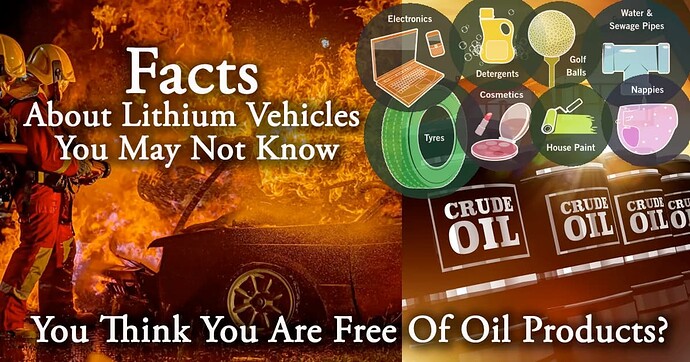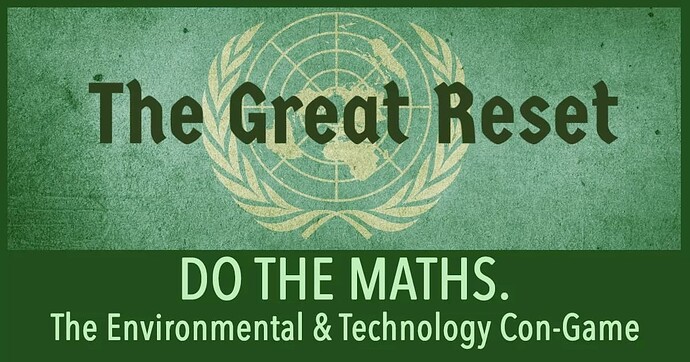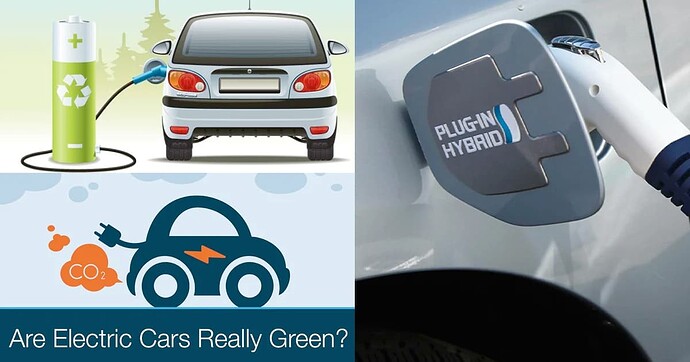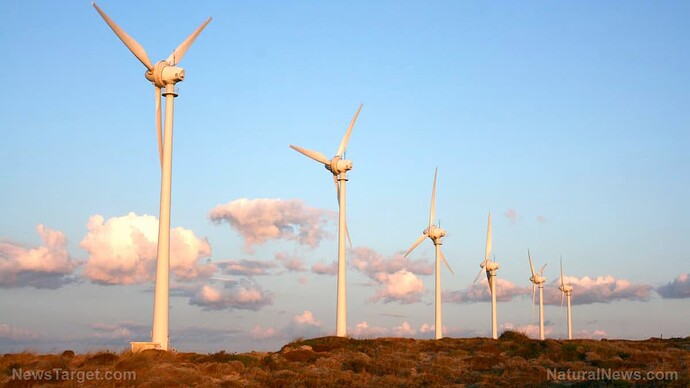China’s Green Trojan Dragon Flying High Over Spain
China’s green Trojan dragon is reigning over putrid green projects all over Spain’s landscape.
And it looks like Spain has surrendered to the Chinese Communist Party in terms of corporate control and debt slavery.
In 2014, the government of Spain – the Spanish Socialist Workers' Party (PSOE) – introduced a moratorium for new solar farms. And in 2015, the government introduced what has been dubbed the world's first “sun tax” on solar installations making them economically less viable, including draconian fines for anyone not complying with the tax, This new tax was not received well with either solar farm investors or “so-called” environmentalists, who criticised the move as impeding “renewable” energy production.
Fast-forward to June 2018, and we find Pedro Sánchez (PSOE) as prime minister of Spain. Note: the PSOE is pro-European integration – the process of industrial, economic, political, legal, social and cultural integration of states wholly or partially in Europe or nearby.
Now, it seems the PSOE is all for the integration of Spain with China.
In November 2018, China’s president made an official visit to Spain – Xi Jinping’s Historic Visit to Spain: A Trip 13 Years in the Making. “The visit concluded with various agreements that stand to enhance the bilateral relationship in political, economic, geo-economic, educational, scientific, and business fields.” Prior to his visit, the Spanish media widely covered Xi’s signed article, ““Joining Hands for New Splendor in the New Era,” in which Xi outlined his point of view regarding the bilateral relationship.
One can read between the lines – all this rhetoric about global governance, climate change initiatives, and free trade is just the commercialization of the geopolitical goal of world domination. Xi’s long-term vision for Spain more aptly would appear to be Spain’s surrender and allegiance to the CCP.
And the CCP’s interest in Spain seems more akin to EXTRACTION OF ITS RESOURCES (including WATER and Spain already has a water problem).
In simple terms, the CCP is “using” Spain.
And the politicians and the government are literally selling Spanish soil out from underneath the feet of the Spanish people. If the CCP wanted the Iberian Peninsula, all it had to do was dangle a carrot (aka money) – the CCP learned long ago that Western nations worship money and materialism. All the CCP needs to do is identify what is valuable in a country and start “the alliances”, which in many cases are “non-disclosed” Memorandum of Understandings. And once it has control of a nation’s valuable assets, the game is all but over. It’s really a stealth move.
China has made moves all around the world, including with the European Union – and the EU "green" goals incorporate cooperation with China.
For the sake of this post, we’ll forgo a complete break down of all the Belt and Road Initiatives (BRI) in Spain, and focus on the Green Dragon.
The East Is Green: China’s Global Leadership in Renewable Energy
Excerpt:
January 2021 – President Xi Jinping’s speech at the World Economic Forum’s meeting in Davos argued for globalization and the international community’s need to pro-actively manage globalization while mitigating its negative effects. He highlighted how China’s past decades of reforms are in line with the trend of globalization, and that China is not only its beneficiary but also its benefactor. Most importantly, Xi stated that China is committed to “a fundamental policy of opening-up,” pledging explicitly to keep China’s doors open to foreign investment and greater economic integration with the world (a carrot). Although he did not openly advocate for a Chinese role in global leadership, Xi’s desire for China to be at the helm of the push towards globalization is implicit throughout his speech. His host, Klaus Schwab, echoed this open secret by remarking that “in a world marked by great uncertainty and volatility the world is looking to China.” Countries, however, are skeptical of Xi’s claim that China can become an active global economic leader through open trade and investment. China is increasingly willing to use economic coercion in conventional sectors such as retail, tourism, and manufacturing to promote its own national objectives. Critics have also pointed to the country’s protectionist policies that speak against its claim to continued openness. China has used a “negative list” to bar foreign investment in various sectors for many years and abused ill-enforced trademark laws to discriminate against foreign firms. Nevertheless, the international community should be assured that China is genuinely interested in leading the world in one particular sector: deployment and investment in renewable energy.
To assume the CCP doesn’t have its own goals is naïve, but should be viewed as willing blindness, blocked by that tunnel vision on a dangling carrot.
It already controls the majority of the so-called renewable energy materials. For instance, all those solar panels being installed in Spain are made in China.
And while Xi gave this speech this year, let’s get back to 2018, because world domination (aka globalisation) has been in the making for quite some time with all these “alliances”.
Bye-Bye Sun Tax – Hello China
Conveniently correlating with Xi’s visit, the Government of Spain, recently under the leadership of Pedro Sánchez, took the first step in repealing the so-called “sun tax”. And the new alliance with the CCP was “an opportunity” to boost the renewable energy sector in Spain.
Interestingly in Nov. 2018, Chief Minister of Gibraltar Fabian Picardo sent Pedro Sánchez a message about Gibraltar’s sovereignty.
Most of the time, fast-talking Picardo is a pill to swallow – in interviews, he can spew out a whole lot of words literally without saying anything. But to hand it to him, this theatrical speech was quite good, especially targeting the all-inclusive PSOE’s Sánchez who most likely is an agent for the globalists – which includes the CCP.
Picardo may have said what we would like to hear, but does he see the boulder in his own eyes?
Picardo is also aligning with those globalists (at Davos). He concludes this video-show with, “And together with Britain, we will build a better, stronger and more prosperous British Gibraltar every single day.” (aka “Build Back Better”). The Government of Gibraltar has also done its fair amount of seducing the CCP’s Trojan dragon with government officials flaunting its FinTech, Insurance, Real Estate Development, Bunkering, etc. (Gibraltar’s Interest in China’s Belt and Road Initiative Might NOT BE in the Best Interest of Gibraltar).
What happens in Spain, doesn’t necessarily stay in Spain
The renewable energy sources in The Campo and even all over Spain are most likely going to affect Gibraltar – thus it’s a good idea for Gibraltarians to care about what’s happening across the border.
Given China’s record at destroying its own soil, water and air, why would the world take advice about environmental issues from China?
Unfortunately, China controls the United Nations; and the UN is the vehicle that the globalists use to set up a One World Government (aka The New World Order).
Don’t let the CCP fool you. It does not plan to give up coal, which is evident in their recent investments in coal – and adds further weight to Bright Green Lies exposure that energy corporations use “green-energy” profits to invest in “black” industries.
China’s Carbon Neutrality Pledge: New Opportunities for Foreign Investment in Renewable Energy
Excerpt:
As the world’s largest polluter of carbon dioxide – responsible for about 28 percent of global emissions – China’s pledge to become carbon neutral will change the nature of the country’s economy, as well as global efforts to combat climate change.
China’s heavy use of fossil fuels means a transition to electricity and renewable energy sources is the most impactful area for carbon reduction, but this is easier said than done. China’s 14th Five Year Plan, which covers the years 2021 to 2025, caps annual coal output at 4.1 billion tons. But, in 2020, China’s coal output grew to 3.9 billion – meaning that the plan does not call for immediately reducing coal output, but limiting its growth potential.
China approved the construction of more coal plants in just the first half of 2020 than it had in each of 2018 and 2019, and has over 200 new plants planned or under construction.
Keep that in mind – because in 2005, National People’s Congress’ (NPC) Environmental Committee observed that fossil fuel energy production and consumption is the cause of 90 percent of the country’s sulfur dioxide emissions.
Another strategic reason to increase renewable resources for electricity consumption is China can mitigate geopolitical tensions by making the country less reliant on unstable regions for energy security… An energy market dependent on fossil fuels relies on securing oil and gas transportation routes to and from fossil fuel-rich countries, which in turn requires extended military protection. The protection of oil transit choke points was one of the reasons why China constructed its first overseas naval base in Djibouti last year. (Source)
Look at China’s CCP track record in Africa - China’s Empty Promises of Green Energy for Africa. “Despite a verbal emphasis on renewables, most Chinese energy financing in Africa goes to coal, oil, and gas.”
Excerpt:
The win-win rhetoric of China’s South-South cooperation policy emphasizes financing for clean energy projects. But the megaprojects being built and planned on the African continent show an increasing gap between the green energy cooperation that is promised, and the actual investments, which still include large amounts of oil, gas and coal.
But while comfortably settling itself into the role as the green energy financier of the developing world, on the ground, China’s image of a clean energy emissary is falling apart.
In 2005, the Chinese financiers stating that one of their priorities was to develop overseas resource extraction projects to make up for domestic insufficiency of resources.
From 2014 until 2017 China’s policy banks CDB, EXIM, and China Export and Credit Insurance Corporation provided the largest share of public finance of all G20 financiers, an average of $5 billion a year, for energy projects in Africa. Almost three-quarters of this financing went to oil and gas. China was also the largest provider of finance for coal power, as still 13 percent of its public financing supported large coal projects. None of these banks contracted any Chinese companies to do renewable energy projects over this period of time.
September 2018 – President Cyril Ramaphosa of South Africa signed a deal in Beijing after the FOCAC summit to build a 4,600-megawatt coal-powered station in Limpopo. This power plant will not power households. It will power Chinese metallurgical companies in the Musina-Makhado special economic zone, which received an injection of Chinese financing earlier this year.
What does China want with Spain?
Wind, solar, and lithium are three reasons, but because all these require land and lots of it, add real estate as a fourth. And a fifth one ends this post.
It kind of all leads to the fact that a tremendous amount of resources are going to be needed to run the totalitarian-super-state with digital identities and the introduction of social credit scores and passes. Klaus Schwab said they were looking to China in this world of uncertainty.
How would the CCP, and the traitorous globalists, introduce such a government? How would they ease everyone into it? Could they make people fear for their lives and coerce them? Then, it would be easy to make people fear non-compliance. Traitors in the axis of power within Western nations are absolutely showing where their allegiances lie.
Meatless Propaganda
Why do they want the world to adopt a meatless diet? Even Gibraltar is doing it in baby-steps.
One reason is that to turn agriculture land into solar and wind farms, something has to go.
COP26: UK 'on the road to nowhere' – Focusing on Manchester UK – “Worst of all, however, the CCC expects 260,000 hectares of agricultural land to be shifted to growing bioenergy crops: that is, more than 1,000 square miles, or twice the area of Greater Manchester. This is undeniably ambitious - but it is the wrong kind of ambition. The BNZ assumes that a shift of diet away from meat and dairy (20 percent by 2030, 35 percent by 2050) will free up a great deal of agricultural land, but the CCC does not explain how this shift is to occur.
Isn’t the shift already occurring with the go-meatless-campaign?
Spain's Dependence on China
At the end of 2020, Spain recognized its dependence on China funding might not be all that – Spain looks to China for cooperation on renewables but worries about overreliance
Excerpt:
“China provides much of the raw materials that Spain and Europe need to decarbonise,” said Alicia Valero, head of the industrial ecology group at Instituto CIRCE. She warns that China controls the production of rare-earth elements, which are needed for the development of wind power, among other green technologies, and that it is also the leading producer of graphite by some distance.
This fact, Valero argued, stresses the extent to which Spain’s ecological transition relies on China, something that she describes as “very worrying” given the restrictions China placed on exports of rare earth elements a decade ago. As a solution she proposes urban mining. But for that, she warns, Spain will need to invest in developing the technology for recycling its electronic waste.
In August this year, China’s state-owned energy giant Three Gorges acquired 13 solar farms in Spain from Madrid-based energy firm X-Elio in a deal for an undisclosed sum. The photovoltaic plants, built between 2019 and 2020, have a total capacity of over 500 MW.
Exus closes the sale of eleven Spanish wind farms to Chinese clean energy developer – 23 August 2021 – Exus Management Partners, experts in powering sustainable investments, has facilitated the financial close of the sale of a 450 MW renewable energy portfolio to Chinese clean energy developer China Three Gorges Europe (CTGE). The portfolio, actually two portfolios - Cefiro and Windrose - consists of eleven wind farms and one solar farm, located in the Castilla y León region of Spain. Thus far it has been joint-owned by Spanish family office Corporation Masaveu (Masaveu) and Belgian investors Korys. Exus will continue in its role as asset manager across the combined sites.
Ask yourself – Who runs Spain now?
Graphene – the 5th reason
The fifth reason China – and its global-partners – would have in Spain is Graphene (as brought up in the above article link about Spain's over reliance of China).
Graphenano and Grabat launch graphene-based batteries | Graphene-Info – Green technologies have taken on special relevance in this phase. CDTI’s programme for uniting Spanish and Chinese companies, known as Chineka, supports initiatives related to the green transition. “There are many projects that have to do with new materials, like graphene, which are critical to producing not only electric cars but lighter ones that will pollute less, as well as lighter wind turbines that will be more efficient,” he said. The Spanish Graphenano recently introduced, together with its Chinese partner Chint, graphene polymer batteries that reportedly allow for a range of 800 kilometers in electric vehicles and can be charged in a few minutes. The batteries are meant for domestic use, in the automotive sector (both cars and bicycles), drones or even pacemakers.
Top Graphene producers companies | VentureRadar – Graphenea is a private European company (based in Spain) focused on the production of high quality graphene for industrial applications.
M&A On Horizon As Spain Invests In ‘Miracle’ Graphene – SPAIN GRAPHITE MINING POTENTIAL
Excerpt:
There are only a few companies in the world with access to graphite, the mineral resource that is required to make graphene, and 70 per cent of supply is controlled by China, so the setup is perfect for any non-Chinese supply to become an extremely lucrative investment.
This is another area where Spain could become a major player if explorations into graphite mining in Huelva province in southwest Spain prove successful.
Graphene is expected to be the motor of the global economy in the coming decades. Will it also become a key economic driver for Spain in the future?
http://www.mandaspain.com/spain-investment-graphene/ - Spain is one of the countries leading the investigation in Europe into the exploitation of this material’s unique properties.
Now why is graphene so important? Would it have something to do with control?
This ends the focus of what's happening in Spain. There are more cooperation agreements if one wants to research them. For example the market of "electric buses".
![]() Update: Watch it on Bitchute
Update: Watch it on Bitchute